Environmental Sustainability and Climate Action
Our Impact
The global crisis we can’t ignore
Climate change is now one of the greatest drivers of poverty and hunger with 45 million people worldwide at extreme risk of famine. This includes almost 21 million children. Communities all over the world are telling us that unreliable seasons, droughts and floods are on the rise. The climate crisis is affecting everyone, but girls and boys in the most vulnerable communities will bear the brunt of the impacts, despite being the least responsible for it.
About 1 billion children – almost one in 2 children - across the globe are now living in countries at extremely high risk of impacts of climate change such as extreme heatwaves, droughts, cyclones and flooding. It is estimated that 3.2 billion people are affected by land degradation, while over 160 million children are living in areas of high-level drought. Without action on climate change, droughts will continue to intensify, land degradation and desertification will continue to accelerate, and the hunger crisis will be further exacerbated.
At World Vision, we believe that every child has the right to both a healthy and safe environment today and a sustainable future. Children are asking us to act now.
Our environmental stewardship and climate action work aims to address both the impacts and the causes of climate change, and deliver positive development outcomes for children. We work with communities through models such as Regreening Communities to restore the environment, embed disaster risk reduction strategies and promote sustainable agri-food systems. We support children and youth to join their communities in advocating for climate action through Citizen Voice and Action, as well as on the international stage at events such as COP.
We partner with communities to build their resilience and prepare them for crises. When such events occur, we are ready to help.
Environmental Sustainability and Climate Action Strategic Roadmap 2024-2027 for a Thriving Environment for Children (Full Version & Executive Summary)
World Vision has developed the first organisation-wide Environmental Sustainability and Climate Action (ESCA) Strategic Roadmap, with an initial three-year commitment (2024– 2027) that aligns with our
Our Approaches
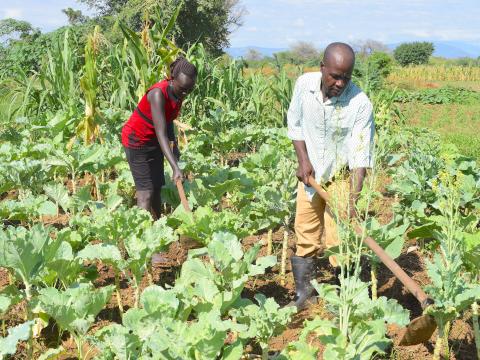
Climate Smart Agriculture
World Vision is implementing Climate Smart Agriculture. This approach attempts to improve agricultural productivity and increase adaptation to climate change. Where possible, it also helps to reduce
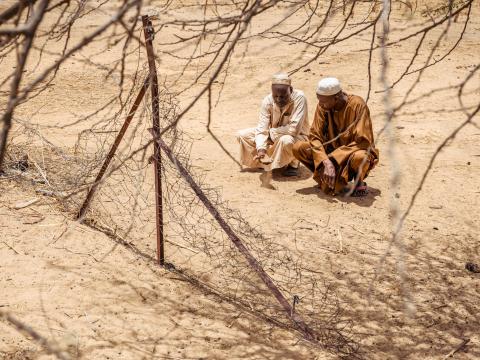
Regreening Communities
World Vision is a global leader in integrating community development with ecosystem restoration for the most vulnerable communities. Our Regreening Communities Project Model address climate change and

Circular Economy and creation of green jobs
World Vision is a strong advocate of sustainable development through the circular economy. We promote creation of green jobs and waste management particularly in urban fragile context areas,
Ensuring

Children’s voices in climate action
World Vision has found that climate change is posing serious child protection risks. There is no silver bullet solution to the complex issues, but we believe that creating spaces for children’s agency
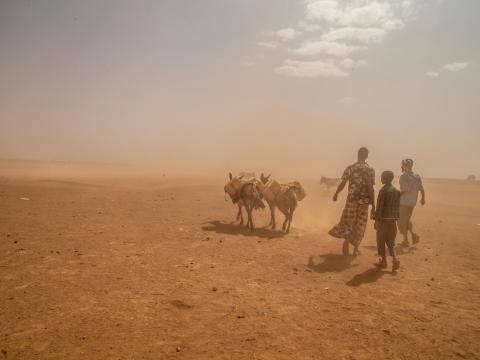
Reducing climate risks and responding to disasters
The climate crisis is increasing severe droughts and floods, risking the lives and livelihoods of millions around the world. In response, World Vision partners with vulnerable children, families, and
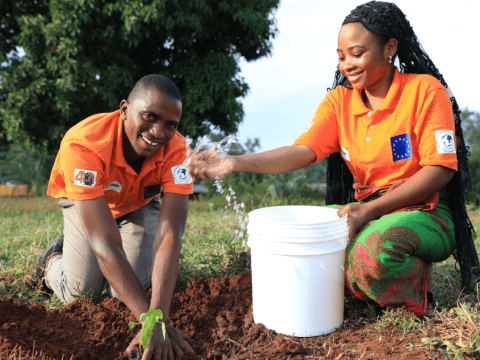
Citizen Voice and Action for climate issues
Citizen Voice and Action (CVA) is one of World Vision’s models and presents a unique approach to social accountability. It is designed to improve the relationship between communities and governments
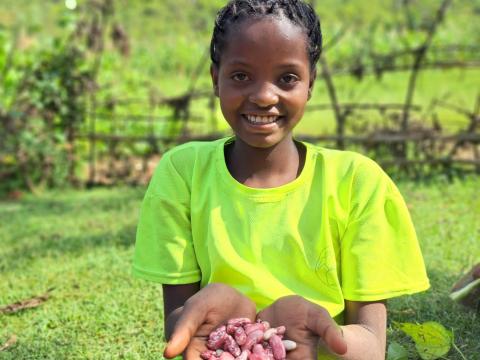
Carbon sequestration
Projects such as the Humbo forestry project, engage in activities that remove carbon from the atmosphere while regenerating degraded landscapes. Sale of carbon credits generates income for local





























